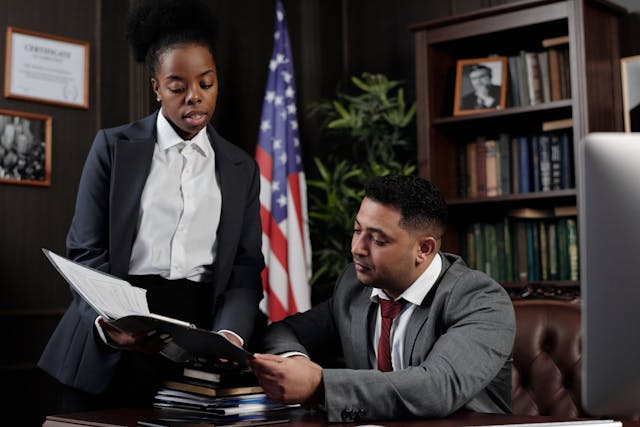Sexual assault cases represent some of the most challenging legal battles for survivors seeking justice. The journey from victim to survivor involves not only emotional resilience but also navigating the complex legal system. Survivors must understand their rights, the legal process, and the role of advocacy in ensuring that justice is served. This article explores the legal aspects of sexual assault cases, the challenges victims face, and the resources available to support them.
Understanding Sexual Assault Laws
Sexual assault laws vary from state to state but generally encompass any non-consensual sexual act, ranging from unwanted touching to rape. The severity of charges depends on factors such as the use of force, the victim’s age, and the perpetrator’s relationship to the victim. In many jurisdictions, sexual assault cases are classified as either misdemeanors or felonies, with penalties ranging from probation to life imprisonment.
Consent and Its Legal Implications
Consent is a fundamental element in sexual assault cases. Legally, consent must be freely given, informed, and revocable at any time. If a person is unconscious, under the influence of drugs or alcohol, or coerced, they cannot legally consent to sexual activity. Courts analyze consent through evidence such as witness statements, medical reports, and digital communications.
Statutes of Limitations
Each state has different statutes of limitations for sexual assault cases. Some states allow survivors to file charges years after the incident, while others have strict time limits. Recent legislative changes have extended or eliminated statutes of limitations for sexual assault cases, recognizing the psychological barriers that delay reporting.
The Criminal Justice Process for Sexual Assault Cases
Navigating the criminal justice system can be daunting for survivors. Understanding each step in the process helps survivors and their legal representatives prepare for what lies ahead.
Reporting the Assault
Survivors can report sexual assault to law enforcement or medical professionals. A police report initiates an investigation, which may involve collecting forensic evidence, interviewing witnesses, and reviewing surveillance footage. Victims may also choose to file a civil lawsuit seeking financial damages.
The Role of Evidence in Sexual Assault Cases
Evidence plays a critical role in sexual assault prosecutions. Common forms of evidence include:
- Medical reports from forensic exams
- Victim and witness statements
- Digital evidence, such as text messages or emails
- Surveillance footage
The credibility of the evidence significantly influences the outcome of the case. Forensic evidence, such as DNA analysis, can provide conclusive proof of contact between the victim and the accused. However, the absence of physical evidence does not mean a case is unwinnable. Prosecutors often rely on circumstantial evidence and the survivor’s testimony to build a strong case.
Prosecution and Defense Strategies
Prosecutors must prove beyond a reasonable doubt that the accused committed sexual assault. They rely on evidence, expert testimonies, and forensic findings. The defense may attempt to discredit the victim, question the validity of evidence, or argue consent. Skilled legal representation is crucial for both parties. Cross-examinations can be particularly stressful for survivors, as defense attorneys may scrutinize their actions before and after the assault to cast doubt on their credibility.
Challenges Faced by Sexual Assault Survivors in Legal Battles
Emotional and Psychological Barriers
Many survivors hesitate to report sexual assault due to fear, shame, or trauma. The legal process itself can be retraumatizing, as victims must recount their experiences multiple times. Mental health support and legal advocacy play vital roles in helping survivors navigate these challenges. Organizations specializing in trauma-informed care provide essential resources to help survivors cope with the emotional toll of pursuing legal action.
Societal Stigma and Victim-Blaming
Survivors often face societal stigma and victim-blaming, which can discourage them from seeking justice. Public perceptions and cultural norms can influence juror bias, making it harder for survivors to achieve favorable outcomes in court. Media portrayal of sexual assault cases can also impact public opinion, sometimes reinforcing harmful stereotypes.
Lack of Resources and Legal Support
Legal representation and advocacy services are crucial for survivors. Unfortunately, many lack access to these resources due to financial constraints or geographical barriers. Organizations and law firms, such as Blass Law, provide legal support for survivors seeking justice. Additionally, some states have established victim compensation funds to assist with legal fees, medical bills, and counseling services.
Civil Lawsuits vs. Criminal Cases in Sexual Assault Litigation
Survivors can pursue justice through both criminal and civil courts. While criminal cases seek to punish offenders through incarceration, civil lawsuits allow survivors to seek financial compensation for medical expenses, therapy costs, and emotional distress.
The Burden of Proof in Civil vs. Criminal Cases
In criminal cases, prosecutors must prove guilt beyond a reasonable doubt. Civil cases, however, require a lower burden of proof—preponderance of the evidence—meaning it is more likely than not that the defendant is liable. This distinction often makes civil litigation a viable option for survivors who may not achieve a conviction in criminal court.
Compensation and Restitution
Civil lawsuits can result in financial settlements or court-ordered restitution. Compensation can help survivors cover medical expenses, lost wages, and therapy costs, aiding in their recovery process. Some states also allow for punitive damages, which serve to punish offenders and deter future misconduct.
The Role of Advocacy and Support Services
Support services play an essential role in assisting survivors through the legal process. Advocacy organizations provide legal guidance, emotional support, and access to resources, helping survivors regain control over their lives.
Medical and Psychological Support
Medical care is crucial for survivors of sexual assault. Many seek treatment for physical injuries and mental health conditions such as PTSD, anxiety, and depression. Access to quality healthcare, as discussed in this article, remains a crucial factor in a survivor’s recovery journey. Mental health professionals trained in trauma care can provide therapy and coping strategies tailored to survivors’ unique needs.
Legal Aid and Pro Bono Services
Numerous legal organizations offer pro bono services for sexual assault survivors. These services help survivors navigate the legal system without the financial burden of hiring an attorney. Legal aid groups also advocate for policy changes to improve survivor protections. Lawmakers and advocacy groups continue to push for better funding of victim services, ensuring survivors have access to the resources they need.
Recent Legal Reforms and Their Impact
Expansion of Survivor Rights
Recent legal reforms have focused on strengthening survivor rights, including extending statutes of limitations, improving forensic evidence collection, and expanding legal definitions of consent. Advocacy groups have successfully pushed for laws that prevent the use of survivors’ sexual history as evidence in court, protecting them from character attacks.
Changes in Sexual Assault Sentencing Laws
Legislators have introduced harsher penalties for sexual assault offenders, including mandatory minimum sentences and lifetime registration as sex offenders. These changes aim to deter future crimes and provide justice for survivors. Lawmakers are also considering reforms that prioritize survivor-centered approaches, such as restorative justice programs that focus on healing rather than just punishment.
Conclusion
The journey from victim to survivor is marked by resilience, legal battles, and the pursuit of justice. While the legal system presents challenges, survivors have access to resources, support, and advocacy to help them navigate the process. As laws evolve and awareness grows, society moves closer to a system that prioritizes survivor rights and ensures accountability for offenders.
For those facing legal challenges beyond sexual assault, such as drug-related offenses, understanding relevant laws is equally important. Learn more about drug possession laws in Texas here.






